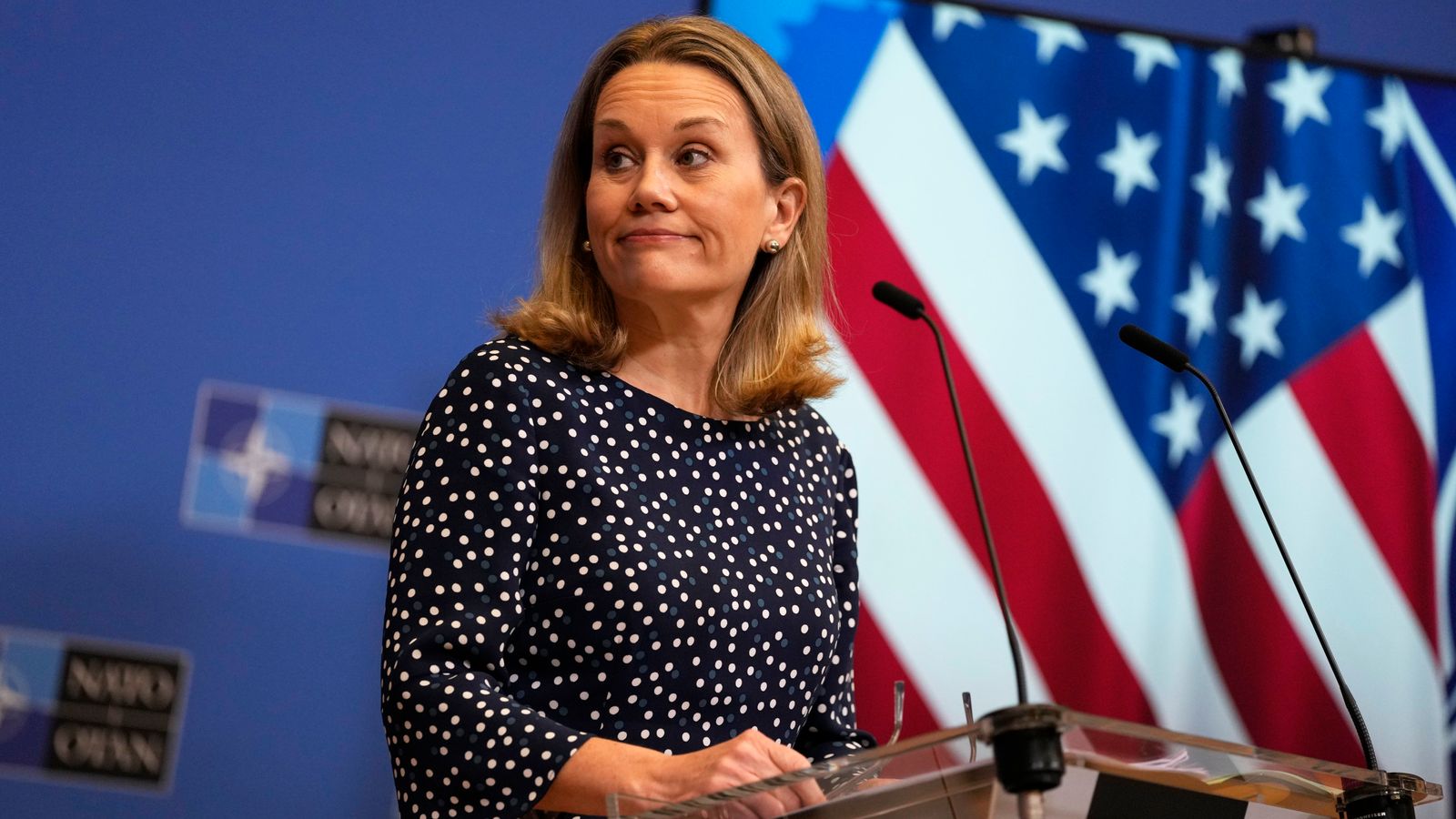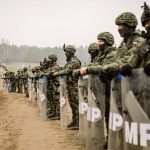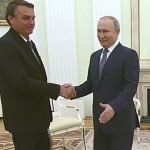The US ambassador to NATO has said the military alliance is trying to expedite the process to ensure that Sweden and Finland join in the next “couple of months”.
Speaking to Sky News’ political editor Beth Rigby, Julianne Smith said in recent weeks NATO members have “come together to try and look at ways that they can reduce the timelines surrounding the process” which would see the two countries admitted to the military alliance.
Ms Smith said the process has previously taken “upwards of a year”, but added that “all allies are in agreement that this process needs to be expedited”.
“Ideally, I think we’d like to see it done in a couple of months. That’s the goal,” she told Sky News’ Beth Rigby Interviews programme.
Finland and Sweden have formally submitted their applications to join NATO in a “historic moment” driven by security concerns over Russia’s invasion of Ukraine.
The applications will now be considered by the 30 member countries of the military alliance.
Ukraine news live: Putin warns of ‘irreversible consequences’ for Europe
Employers ‘breaking the law’ on maternity rights, says attorney general
Turkish President Recep Tayyip Erdogan has expressed reservations about Finland and Sweden joining.
Announcing the move after receiving their letters, NATO secretary general Jens Stoltenberg said: “This is a historic moment, which we must seize.
“I warmly welcome the requests by Finland and Sweden to join NATO. You are our closest partners and your membership in NATO will increase our shared security.”
The entire membership process usually takes around eight to 12 months, but given the threat from Russia, it had been reported that the two Nordic countries could become members within a couple of months if their applications are approved swiftly.
Echoing this sentiment, Ms Smith told Rigby that despite Turkey having expressed concerns, she is personally “quite confident that we’ll find a way through this” which will see both Finland and Sweden admitted to the military alliance.
Asked if the two countries’ applications could be fast-tracked, Ms Smith said: “Yeah, so in recent weeks, the allies have come together to try and look at ways that they can reduce the timelines surrounding the process.
“There are a number of steps involved. There’s something called the accession protocol, which all allies have to sign here at NATO, and the two new members would sign that as well.
“In order to get to that signature will have to go through something called the accession talks.
“Once the protocol is actually signed, then every member of the alliance has to ratify the agreement, which can take some time and you’re right in the past, we’ve seen instances where that process has taken upwards of a year, but given the situation on the ground in Ukraine, the fact that we have a war that’s ongoing on European territory, I think all allies are in agreement that this process needs to be expedited.”
Probed on whether Turkey could be a stumbling block in the process, with all NATO members having to agree to a new country joining, Ms Smith confirmed that Turkey has come forward to express some “specific security concerns”, but added: “I think we will see eventually Sweden and Finland joining the alliance in the not too distant future.”
“Everything that NATO does, has to be reached through consensus,” she said.
“You have to have 30 allies vote on it. So we have 73 years of experience of working through ally differences. And for that reason, I too, personally, am quite confident that we’ll find a way through this.”
Please use Chrome browser for a more accessible video player
Finland had since the Second World War maintained a policy of neutrality regarding Russia, with which it shares a 830-mile (1,340km) border. Its neighbour Sweden, which shares a maritime border with Russia, has also traditionally kept a neutral stance.
Both countries have for decades considered that joining NATO would represent an unnecessary provocation of Moscow.
However, public opinion in both countries has shifted massively in favour of membership since Russia invaded Ukraine on 24 February.
Subscribe to the Beth Rigby Interviews…podcast on Apple Podcasts, Spotify, and Spreaker
Their applications will first be examined in a sitting of the North Atlantic Council (NAC) of the 30 member countries, likely at ambassadorial level.
Seeking to move the membership process along, Sweden’s defence minister has already gone to Washington and will be followed by Swedish Prime Minister Magdalena Andersson and Finnish President Sauli Niinisto later this week.
Both nations have brushed off warnings from Russia that joining NATO would trigger “serious military and political consequences”.
On Monday, Russian President Vladimir Putin said he had no issue with Finland and Sweden, but warned Moscow would react to the expansion of military infrastructure on their territories.
Beth Rigby Interviews is live at 9pm every Thursday on Sky News.






















